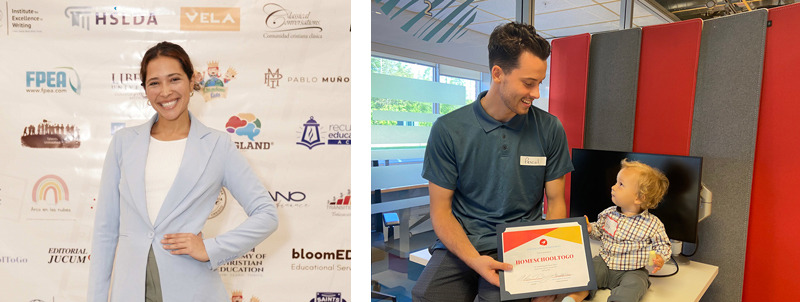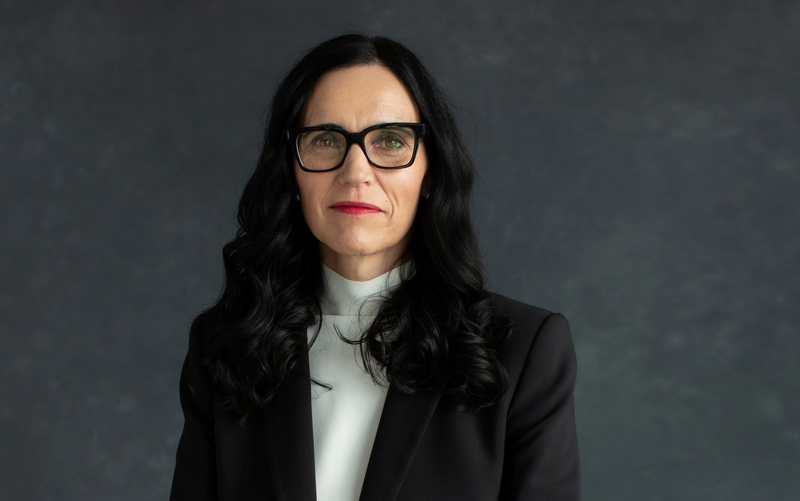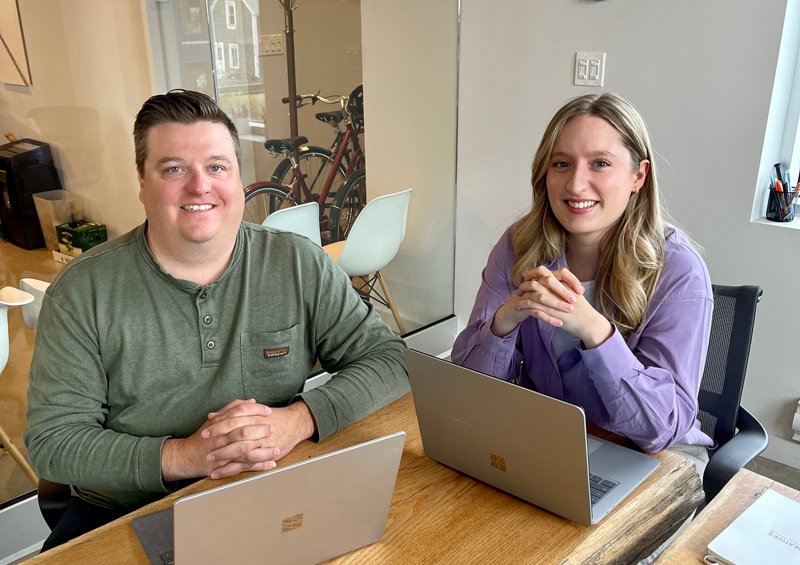Account Login
Don't have an account? Create One

Despite innovative ideas and strong revenue, experts say marginalized entrepreneurs are underrepresented when it comes to investment.
Over 90 per cent of all venture capital funding across North America is provided to white male-led businesses.
Raymond Fitzpatrick, former director of investment for NBIF, founded Profitual to help founders navigate their finances with artificial intelligence. The concept originated with his distaste with “how elitist” the venture capital space is. “There’s a million reasons why a company won’t be able to get funded, but we try to alleviate that issue.”
He said a founder’s ability to get funding depends on whether their business is product-based or technology-based, it’s female-led versus male-led, or it’s being led by someone Canadian or international. Fitzpatrick said more funding is presented to founders from a wealthy background versus a poor one.
A lot of companies are funded by angel investors, said Fitzpatrick. “If you don’t run in those networks, you don’t know how to talk to those people in the language that they’re talking. It’s very hard to find them and convince them to give you money.”
Sarah Young co-founded Sandpiper Ventures, a female-focused venture capital firm, after witnessing the frustrations that women founders encounter. “We were seeing founders who were excelling, but who weren’t necessarily attracting the capital.”
Young said women-led startups receive only 1.9 per cent of funding across North America and women of colour receive 0.2 per cent. “It’s surprising, particularly because women founders actually outperform male founders,” she said.
Women-led companies earn 78 cents of revenue per investment dollar, compared to male-led companies which earn 31 cents, according to the Boston Consulting Group.
Female founders are often denied funding, but offered mentorship in replacement, said Young. “Women don’t need mentorship; we need capital.” When women-led startups do receive funding, their cheque is less than half the size of their male counterparts, on average.
Young said when women are given the opportunity to pitch, they’re often asked questions differently. Women will be asked to prove why they won’t fail, and men are asked why they will succeed. “Women tend to often be more pragmatic or undersell their companies and sometimes this is around competence, sometimes this is just around a much more realistic outset.”

She’s heard a host of anecdotes from women CEOs who, when seeking funding, say they received feedback on what they wore, how they should act and talk and others who say questions were directed to their male peers.
Houlie Duque founded HomeschoolToGo, a bilingual holistic homeschool program, after she gave birth to her son and noticed a gap in education available to youth. The program, based in Fredericton, New Brunswick, offers a broad curriculum, including math, literacy, emotional development, STEM projects and puts a focus on outdoor learning.
As a newcomer from Columbia, Duque said starting her company in 2020 was no easy feat. “As a newcomer, woman, single mother, just coming on to a market with something, most of the stakes are against me,” she said.
She spent 10 years in Canada before receiving her permanent resident status, which then allowed her to work a full-time job. Before that, Duque’s only option was to work a remote job from Columbia earning Colombian currency. “That put me financially way behind the race line compared to everybody else.”
Duque said not being able to secure funding was just one more barrier she had become used to, along with racism. “I do constantly face that situation where people think that I’m less smart because I don’t speak the language the same way.”
She doesn’t think her company would have been as successful raising capital if it weren’t for her co-founder Pascal McCarthy. “He’s a white man who has had a lot of success raising funding for his own business,” she said, “I was told a couple of times that the fact that I have a man on my team makes me more believable.”
Related articles:
McCarthy earned a master’s degree in technology management and entrepreneurship at the University of New Brunswick and, because of his longtime presence in the local business community, knew how to demonstrate business finances and find funding opportunities. “This is an advantage that nobody else with my history could normally access,” said Duque.
Duque was also grateful for NBIF’s Breakthru Start-Up pitch competition specifically for newcomers. Suddenly being an immigrant was an advantage, allowing her to compete on a level playing field. And, she won.
Pitching competitions became second nature for Duque, and her company raised $139,000 from successful pitch decks. She claims she did find more success when women were on the other side of the table. “Once it was a boardroom with 15 men and I felt in my gut my chances were low.”
She has noticed more women entering the venture capital space, including Sydney Rankin, Oriana Cordido and Laila Thériault, who were supportive and understood the challenge of being a woman in business. “I must say the role that they’re playing in those companies has really impacted my life as a woman in business in Atlantic Canada.”
Alfred Burgesson, CEO and founder of Tribe Network, said he started his company to support underrepresented founders after his own lived experience as an entrepreneur.

Born in Ghana, Africa and raised in Nova Scotia, Burgesson said he struggled to feel like he belonged in the business community. “I didn’t see people who looked like me working for the different accelerators and incubators.”
He eventually built a support system and founded a digital media company that garnered clients, including the NBA and Canada Basketball, but he wanted to offer the opportunity of an inclusive space for founders who are Black, Indigenous and People of Colour.
Based in Halifax, Tribe partners with innovation hubs and provides a roster of mentors to entrepreneurs. ”Entrepreneurship is hard, it can often feel lonely so networks like Tribe ensure that Black, Indigenous and People of Color feel and know that they belong in this entrepreneurship, innovation space,” said Burgesson.
He’s witnessed a host of entrepreneurs who excelled in the business space once given support. This includes Jonah Chininga, the CEO and co-founder of Woveo, which allows people to pull their money together to build a stronger credit.
Chininga worked on building the company for four years without any success accessing venture capital. He then found Tribe, which immediately connected him with a host of venture capital firms. Chininga found success with BKR Capital, a Black-led venture capital firm, and raised over $1 million in pre-seed funding.
Ravindra Kempaiah is an immigrant from India who founded Zen Electric, which specializes in developing light-weight electric bikes. Tribe connected Zen Electric with North South Power, a Nigerian-based company, which led a seed funding round that raised $1.25 million.
“What I’m noticing is it’s taking another Black-led venture capital firm to lead the round for them to actually reach their raise target,” said Burgesson. Tribe connects founders with venture capital firms of all kinds, but it’s the Black-led firms that are willing to take the risk.
He said Black, Indigenous and immigrant founders are often trying to solve a problem that they’ve experienced. “People are really able to invest in people they understand and whose lived experiences they understand,” he said. More Black, Indigenous and immigrant-led venture capital firms are needed in Canada to bridge that gap and existing firms need to be more inclusive when hiring.

WHY IS THIS HAPPENING?
Sydney Rankin, a former venture capitalist for NBIF who is now bringing her expertises to Profitual, said venture capitalists often want to see a degree that aligns with the company being pitched and they want to see how much stake the founder has in their company with personal assets, which are barriers for marginalized founders.
She said most funding goes to tech startups, but women are more likely to pitch a product-based business and only three funds across Canada invest in products. “We know it is a category that is pretty well-diversified in a lot of different ways,” said Rankin.
Fitzpatrick is also a professor in the Business Administration department at the University of New Brunswick and says the vast majority of students in his classes are men. “You end up with engineering and computer science [students] being predominantly male, and then venture capital looking to invest in computer science and engineering companies.” Fitzpatrick said he wonders if intervention is needed at the education level.
Fitzpatrick said female founders are oftentimes pitching products that solve issues for other women, and he’s witnessed venture capitalists squirm because of it. “You could just see the different men around us, when we were bringing these investments forward, how uncomfortable it made them,” he said.
“The thing that keeps us up at night is, how many great companies just don’t get started?” said Fitzpatrick, “How many cancer curing startups never get funded, because they’re not able to convey that to investors.”
According to Highline Beta, women represent 15.2 per cent of venture partners and 16.7 per cent of angel investors in Canada.
Women working in venture capital are oftentimes underpaid. Females filling analysts, senior analyst and associate positions make between three and 13 per cent less than their male peers in median salary and 43 to 46 per cent less bonus-wise, according to Canadian Women in VC.
Rankin said most marginalized founders get one chance to make a successful pitch. “I think it’s that fear of being put under a microscope,” she said, “All founders, when they get a shot to pitch, they don’t know when their next opportunity with an investor will be, but I think that’s particularly sensitive for female founders and minority founders.”
Almost every female founder she’s spoken to and has tried to help get funding for could share an experience where they felt venture capitalists didn’t understand the product they pitched or struggled to find an opportunity to pitch their startup at all.
A STEP FORWARD
Young said she is seeing more women enter the venture capital space and more female-led companies bringing forward innovative startups. “There are even more companies and women founders here on the East Coast than we actually anticipated.” Sandpiper Ventures has raised more than $20 million in funding for 11 women-led companies in the technology sector.
“This is really about the future economy and wanting more women who have an opportunity to participate and make determinations around what innovation looks like,” said Young.
Rankin, who teaches business courses at the University of New Brunswick, said there’s been a shift in student behaviour. They take into consideration potential biases when analyzing pitches with a goal to create a level playing field for all founders. “These are conversations that they’re creating and they’re having because it’s what they care about.”
She feels confident that change is happening from the bottom level, but isn’t sure there’s movement from the top level where funds are being administered.
Rankin said there’s a lack of data to reflect the unproportionate distribution of venture capital, which is largely because the business sector doesn’t ask enough questions about racial, gender and sexual identity. “It’s incredibly foreign to a lot of individuals in business, the best way to approach surveying.”
The Canadian Venture Capital Association is spearheading a movement though, by asking companies across the country to report diversity amongst their top level management and lower level teams, including members who identify as female, Black, Indigenous and as part of the LGBTQ+ community. “Their reporting framework is probably the most prevalently pushed out across venture capital funds in Canada,” said Rankin.
This is significant, said Fitzpatrick, because now companies must report these numbers to get funding from BDC, the largest venture capital firm in Canada. “They took a leadership position in it and people are reporting back, because they know that this needs to be done now.”
Comment policy
Comments are moderated to ensure thoughtful and respectful conversations. First and last names will appear with each submission; anonymous comments and pseudonyms will not be permitted.
By submitting a comment, you accept that Atlantic Business Magazine has the right to reproduce and publish that comment in whole or in part, in any manner it chooses. Publication of a comment does not constitute endorsement of that comment. We reserve the right to close comments at any time.
Cancel
An amazing and impactful perspective on a not-so-talked-about matter. The world needs to hear more of this. Great work on bringing to light the challenges magrinianized entrepreneurs face in the VC ecosystem.